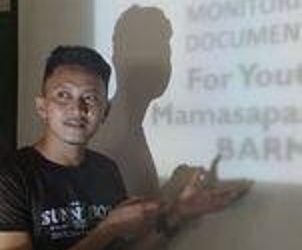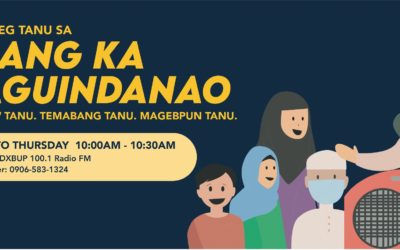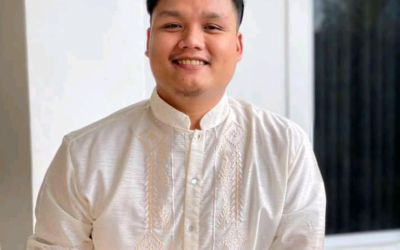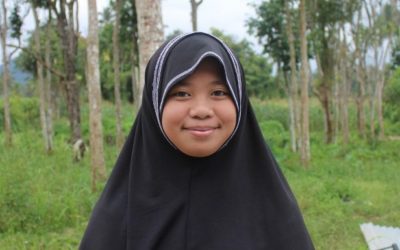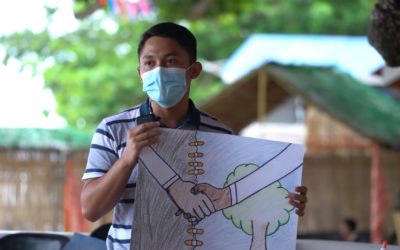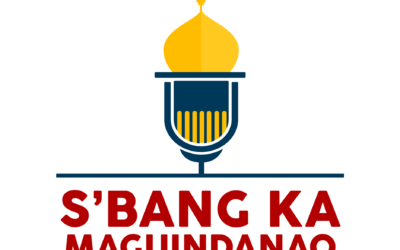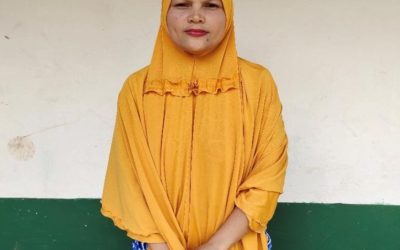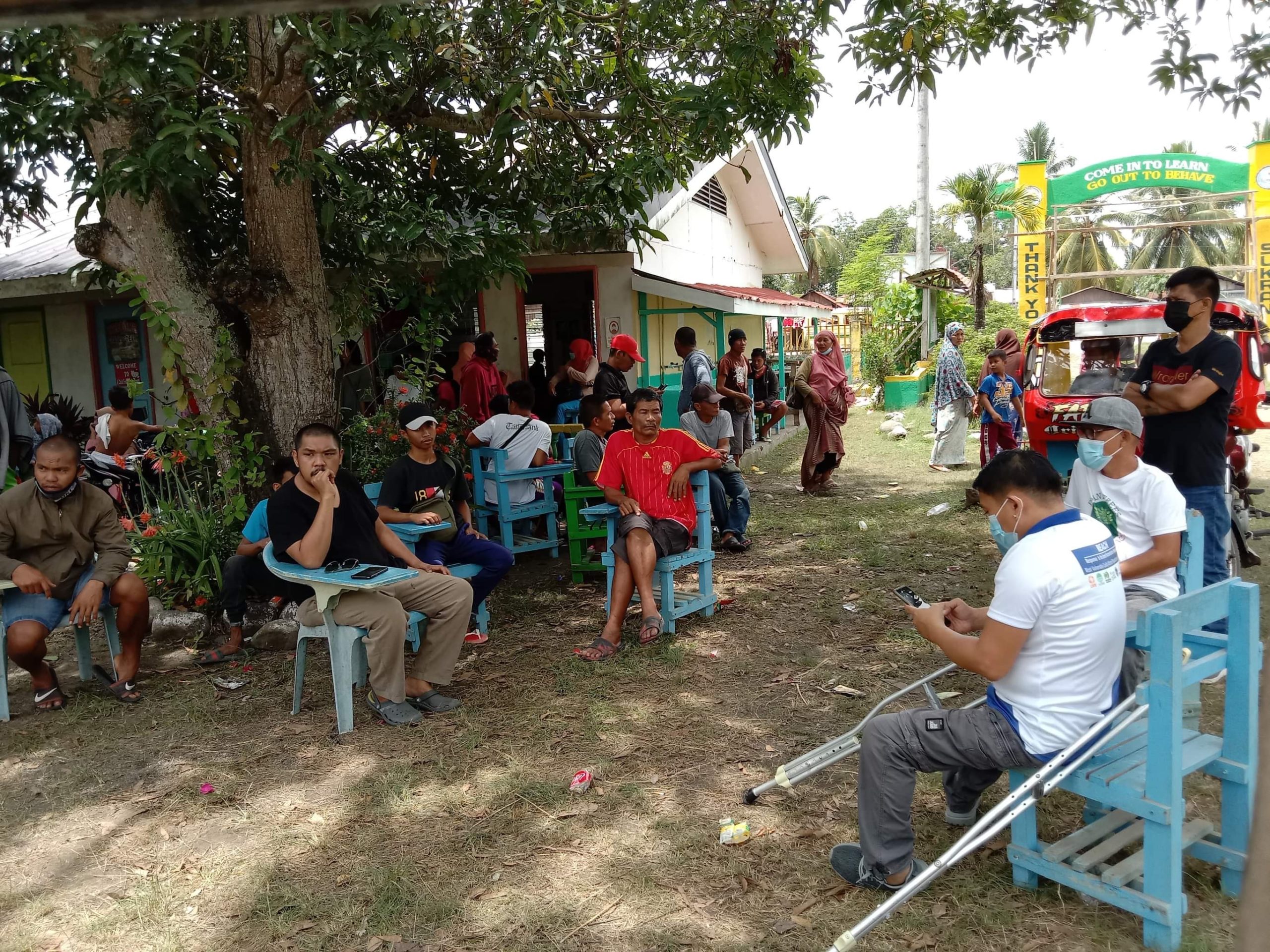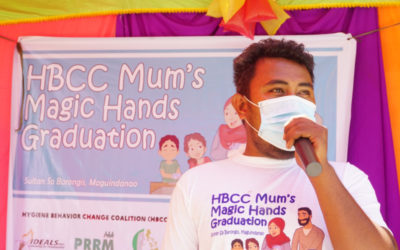IMPACT STORIES
Impact stories are advocacy narratives which aim to spotlight the upshots of non-profit projects, embolden initiatives for empowerment, and effectuate positive social impact. It serves as the documentation arm of the organization to cover its various legal projects and development programs.
Stories
Engaging young minds towards peaceful community
RIGHTS IN CRISIS AND EMERGENCIES Molded by the challenges and struggles of being raised in conflict-affected community, Samarudin Samsudin is now one of the most active youth leaders in Mamasapano, Maguindanao and a role model to the youths on his community. ...
Sharing people’s narrative through My Voice
RIGHTS IN CRISIS AND EMERGENCIES Maguindanao is commonly known for being a stronghold to armed clash due to the presence of extremist groups. For many years, these armed hostilities between parties have triggered the displacement and death of the local population,...
The bitiyara continues
RIGHTS IN CRISIS AND EMERGENCIES Nazem Casa, 26, has been a member of the Sangguniang Kabataan (SK) of Barangay Banggolo in Marawi City for more than two years. Nazem joined his fellow youth leaders from Marawi City and Saguiaran in Lanao del Sur at the Bitiyara...
Promoting peace, one story at a time
RIGHTS IN CRISIS AND EMERGENCIES Normina Limbona, 19, is one of the community patrollers of S’bang ka Marawi. Mina, as she is fondly called by friends and family, started as a patroller in September 2020. Since then, she has produced reports on a wide variety of...
Hope for a better tomorrow
RIGHTS IN CRISIS AND EMERGENCIES When the Marawi Siege happened, Sittie Nadja’s family lost their small rice business in Dansalan, Marawi City. With seven children in the family, this made it difficult for them to make ends meet. When the lockdown was implemented due...
Providing information they can trust
RIGHTS IN CRISIS AND EMERGENCIES Bibo kid (Active kid). This has been Jamal Pandapatan’s monicker as S’bang Ka Marawi’s community patroller. He is an active member of a lot of youth organizations with different advocacies including peace education, mental health and...
Staying informed should be more than a habit
RIGHTS IN CRISIS AND EMERGENCIES During the enhanced community quarantine, Jamael Dimaampao’s business of designing weddings reached its lowest point. He and his team did not have any income due to the restrictions on mass gathering for almost two months. Because of...
Karanasan sa armadong bakbakan: pagmumulat tungo sa mapayapang pamayanan
RIGHTS IN CRISIS AND EMERGENCIES “Madaling araw ng ika-25 ng Enero sa taong 2015, ako’y naalimpungatan dahil sa ingay sa labas, dinig ang mga sasakyan na dumadaan at yapak ng mga bota patungo sa di malamang direksyon. Mukhang mga sundalo ng gobyerno na magsasagawa ng...
Radio as source of information
RIGHTS IN CRISIS AND EMERGENCIES Radio is proving invaluable in terms of delivering information. It is a much more portable medium than other traditional media. Listeners can tune in on radio programs on-the-go whether on their phone while in transit, while driving,...
Peace begins at home
RIGHTS IN CRISIS AND EMERGENCIES Alikhan Macaorao Andamama, 50, has two wives and 15 sons and daughters. He works at the National Power Corporation in Marawi City. His wife, Subaida M. Andamama helps in their family expenses by making and selling mamandiang (Maranao...
Situationer on the Armed Conflict and Displacement in Datu Paglas, Maguindanao
RIGHTS IN CRISIS AND EMERGENCIES Last Friday evening, May 7, 2021, a group of men, eventually identified as the Bangsamoro Islamic Freedom Fighters (BIFF), was spotted at the Masjid (place of worship) near the Datu Paglas Public Market. The BIFF group even assured the...
Dad’s Magic Hands: Promoting Hygiene Practices While Challenging Gender Norms in Care Work
At the height of the global pandemic last October 2020, Rohamina, 33, an OFW, came back by an ambulance to her hometown in Sultan Sa Barongis, Maguindanao. She decided to hide the fact that she just got back from abroad to prevent being discriminated by anyone she comes across in her hometown. But what did Rohamina do in order to overcome her fear of being discriminated by her community?

